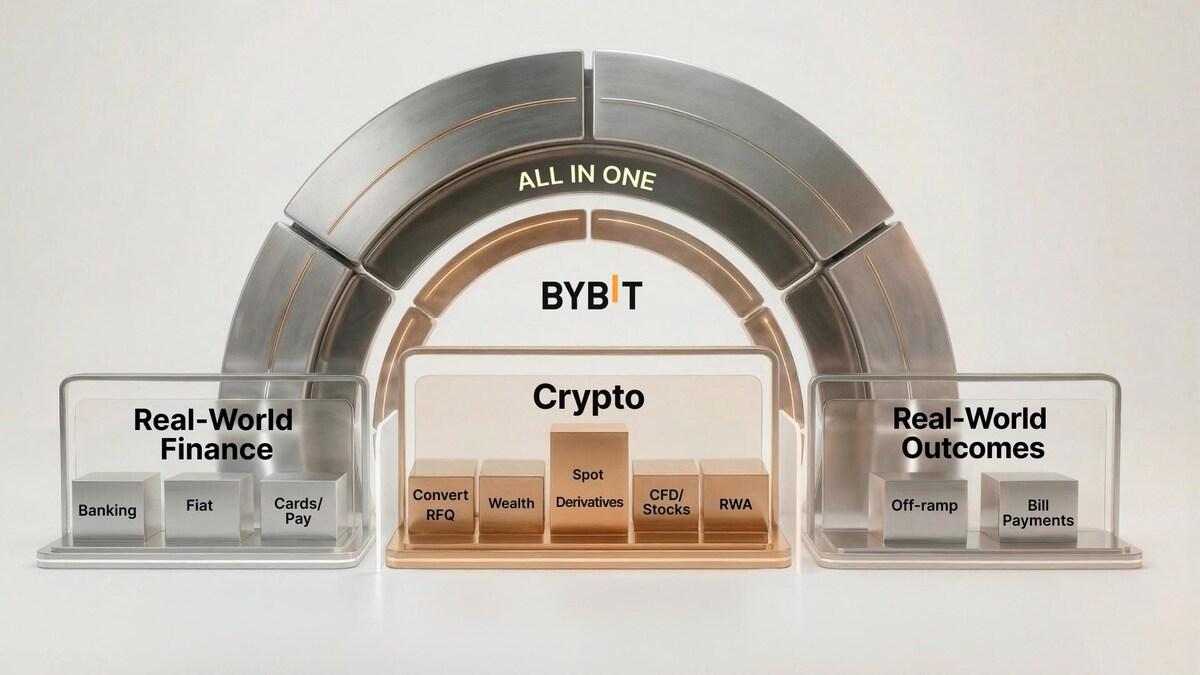Ethereum ETF timeline is a topic of interest to many investors as the SEC’s May deadline approaches. Let’s learn with Coincu about the important dates for spot Ethereum ETF approval.
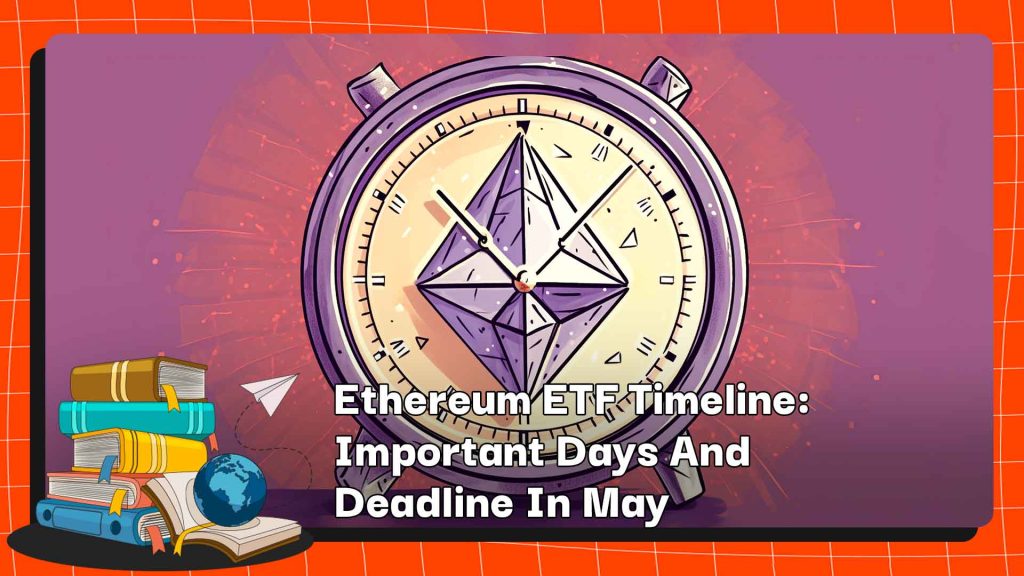
Overview of spot Ethereum ETF
What is a spot Ethereum ETF?
Functioning akin to traditional ETFs, spot Ethereum ETFs are managed by institutions that commit to purchasing and holding Ethereum (ETH) in their reserves.
These ETFs are subsequently listed on conventional stock exchanges, where they issue shares representing ownership of the ETF. Traders can then gain exposure to the real-time price movements of Ethereum through trading these shares, as they reflect the value of the ETH held by the institution.

It’s essential to understand that while owning shares of a spot Ethereum ETF provides exposure to the ETF’s underlying ETH reserves, it does not equate to direct ownership of individual ETH tokens. Shareholders hold claims on the value of the ETH holdings rather than the cryptocurrency itself.
Moreover, institutions managing the ETF may employ various strategies with the underlying ETH, such as lending it out or engaging in staking activities, in a bid to potentially enhance returns for the ETF.
Read more: What Is A Spot Ethereum ETF? How Important Is The New Ether ETF?
Spot Ethereum ETF Timeline
The SEC has set a schedule of deadlines for various spot Ethereum ETFs, marking a significant moment in the cryptocurrency investment landscape. Among the ETFs awaiting SEC approval, the Valkyrie Bitcoin & Ether Strategy ETF (BTF) submitted by Valkyrie Investments in August 2023 holds the distinction of being the first to face a decision. Unfortunately for Valkyrie, their ETF was met with rejection by the SEC in October 2023.
Following closely behind is the Bitwise Bitcoin & Ether Equal Weight ETF (BITC), with a deadline of October 9, 2023. Subsequently, the Ether Strategy ETF (ETHU) filed by Volatility Shares is slated for consideration with a deadline of October 11, 2023.
The list comprises a total of 16 ETF filings, each assigned specific deadlines. Eight of these filings are due on October 16, 2023, while three face deadlines on October 17, 2023. Singular deadlines are set for October 18, 2023, and October 30, 2023, respectively.
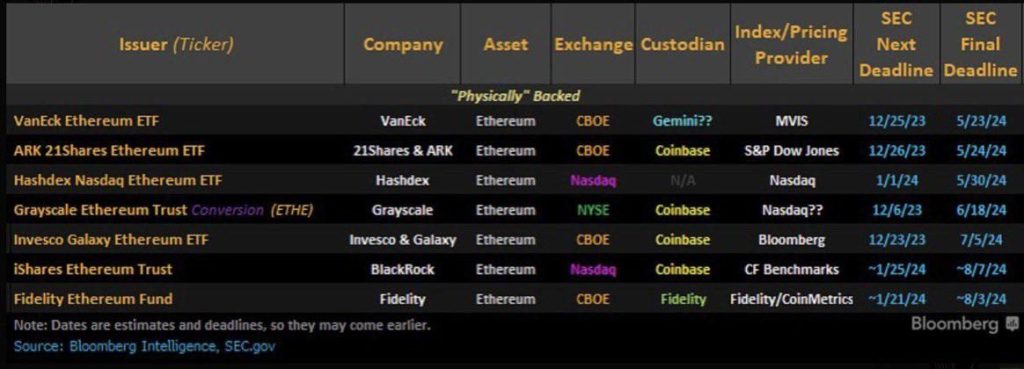
Recent developments from the SEC include the initiation of a 21-day comment window, commencing on April 2, for Ethereum ETF filings from industry players such as Grayscale, Fidelity, and Bitwise.
The looming May 23 deadline holds particular significance, as it marks the final decision date for VanEck’s ETF filing, a development eagerly awaited by both investors and cryptocurrency enthusiasts alike.
Read more: Spot Ethereum ETF vs. Ethereum Futures ETF: Which Is The Better Investment?
SEC Delays Spot Ethereum ETFs
Recently, the SEC has extended the timeline for making decisions on proposed spot Ethereum ETFs submitted by Grayscale and Franklin Templeton. This delay impacts the anticipated approval or disapproval of these ETFs and potentially signals ongoing deliberations within the regulatory agency.
specifically, the SEC has deferred its decision on the Franklin Ethereum ETF to June 11, 2024. This extension allows the SEC additional time to review the proposal before determining whether to approve, disapprove, or institute further proceedings. Similarly, the SEC has postponed the evaluation of the Grayscale Ethereum Trust’s proposal, setting the next deadline for June 23, 2024, as indicated in Tuesday’s filing.

The SEC’s decision affects not only Grayscale and Franklin Templeton but also other major players in the market. Notably, the agency has also delayed rulings on applications for Ethereum ETFs from VanEck and BlackRock. This series of delays underscores the complexity and cautious approach of the SEC toward approving such financial products.
Several prominent financial institutions, including Fidelity and BlackRock, have sought approval for spot Ethereum ETFs in recent months. However, they, too, have faced postponements in the decision-making process by the SEC. This indicates a broader trend of regulatory scrutiny and thorough assessment of ETF proposals within the cryptocurrency space.
Read more: Ethereum Dencun: Important Update Enhances Network Stability
Spot Ethereum ETF Approval Deadline
Attorney Scott Johnsson recently provided insights into the potential spot Ethereum ETF timeline for approval by the SEC, sparking considerable interest within the cryptocurrency community. Johnsson suggests that the SEC could potentially greenlight an Ethereum ETF as early as May 2024. However, if this timeline proves overly ambitious, approval might be anticipated by mid-2025.
This speculation is rooted in the SEC’s handling of spot Bitcoin ETFs, where the commission displayed notable efficiency, transitioning from initial comments on ETF registration statements to the amendment of S-1 forms in a remarkably short timeframe. Drawing parallels, observers wonder whether the SEC will adopt a similarly expedited process for Ethereum ETFs, especially with a looming deadline for spot Ethereum ETFs in May 2023.
The impending decision dates add an element of urgency to the situation, with final deadlines set for May 23 and May 24 for the SEC to rule on applications from VanEck and ARK for Ether ETFs, respectively. The outcome of these decisions will likely provide further insight into the SEC’s stance on Ethereum ETFs and the potential timeline for their approval.
Read more: Ethereum ETF Applications: Is There Potential For New Breakthrough?
Pessimism About Approval of Spot Ethereum ETFs
Journey Towards Cryptocurrency ETF Approval
The potential approval of a spot Ethereum ETF is poised to mark a significant milestone in the cryptocurrency market, signaling broader acceptance and integration of digital assets into traditional investment portfolios.
However, the current sentiment surrounding the launch of spot Ethereum ETFs in the United States is predominantly pessimistic. Insiders familiar with the matter have revealed that meetings between the SEC and spot Ethereum ETF applicants have been one-sided, lacking substantive discussions about the proposed products or addressing concerns typically raised during ETF application reviews.
SEC’s Anti-Crypto Stance
The journey towards approving cryptocurrency ETFs in the U.S. has been filled with anticipation and setbacks. While the SEC’s steps towards approving spot Bitcoin ETFs marked a significant milestone, recent observations by analysts suggest a lowered probability of spot Ethereum ETF approval by May. SEC Chair Gary Gensler‘s stance on cryptocurrencies, notably labeling Bitcoin as a commodity rather than a security, adds to the uncertainty surrounding Ethereum’s regulatory classification.
The anti-crypto sentiment prevailing within the SEC, under the leadership of Gensler, has become increasingly apparent, as evidenced by recent investigations into several U.S. companies’ dealings with the Ethereum Foundation. These investigations come on the heels of statements by the SEC suggesting that proof-of-stake blockchains and associated tokens could be considered investment contracts. Additionally, lawsuits have been filed against prominent exchanges like Coinbase and Kraken, centering on their staking-as-a-service offerings to investors.

Regulatory Uncertainty and Scrutiny
The scrutiny of U.S. companies’ interactions with the Ethereum Foundation underscores the regulatory uncertainty surrounding cryptocurrencies and their associated activities. Gensler’s leadership has signaled a more cautious approach towards digital assets, with the SEC scrutinizing various aspects of the crypto ecosystem, including blockchain technology and token offerings.
The classification of proof-of-stake blockchains and tokens as investment contracts introduces further complexity to the regulatory landscape, potentially impacting the operations of blockchain projects and their affiliated companies. The lawsuits against exchanges for their staking-as-a-service offerings highlight the SEC’s focus on investor protection and its intent to ensure compliance with securities regulations within the crypto industry.
Industry Optimism vs. Regulatory Hurdles
Despite the challenges, industry giants such as Fidelity, Invesco, and BlackRock have submitted applications for spot Ethereum ETFs, reflecting continued optimism within the crypto community. However, regulatory hurdles persist, with the SEC prioritizing investor protection and likely imposing stringent oversight and compliance requirements on approved ETFs.
The regulatory environment remains uncertain, with the possibility of delays in the approval process and alterations to the SEC’s approach. While the potential approval of an Ethereum ETF represents a significant step forward for the cryptocurrency market, it also underscores the complexities and challenges of navigating regulatory frameworks in the evolving landscape of digital assets.
What Happens If SEC Delays Approval of Spot Ethereum ETF in May
If the SEC denies VanEck’s application for a spot in Ethereum ETF, it could set a precedent that likely leads to the rejection of similar applications from other prominent investment firms later in the year. Entities such as Ark Investment, Grayscale, Franklin Templeton, Invesco Galaxy, and BlackRock have all expressed interest in launching Ethereum ETFs.
The SEC’s recent decision to delay the approval of spot Ethereum ETF has thrown a shadow over the potential for Ether ETFs, halting the momentum that had been building in anticipation of broader institutional acceptance. These ETFs have been seen as a regulated pathway for investors to access cryptocurrencies, but their future now seems uncertain amidst regulatory uncertainty, impacting both investor sentiment and ETF performance.
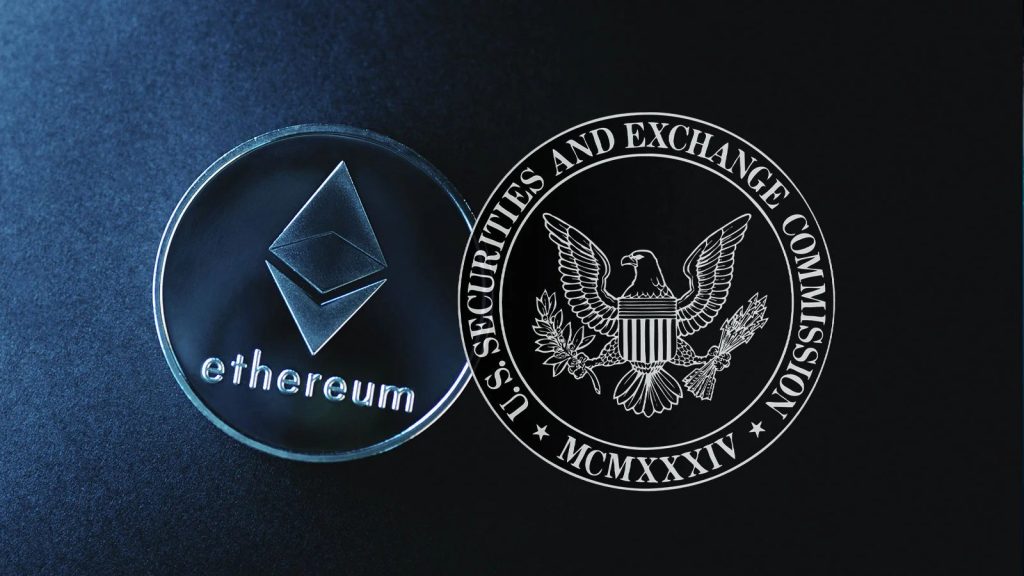
The delay in spot ETF approvals by the SEC is seen as a temporary setback for Ether ETFs. While this decision has raised concerns about the future of such investment vehicles, its immediate impact on Ethereum may be limited. This is partly due to the fact that the SEC’s rejection was anticipated by investors, allowing them time to prepare mentally for the outcome.
Comparisons have been drawn to the history of Bitcoin ETF rejections over the past decade. Despite numerous rejections by the SEC, Bitcoin eventually became somewhat immune to regulatory actions. However, the case of Ethereum differs significantly, as the asset has not had as long a history with regulators.

Moreover, the delay in ETF approvals may also stem from issues within the asset management firms seeking to offer these products. Concerns about these firms’ readiness to meet the SEC’s approval criteria, including the development of internal structures aligned with regulatory expectations, could be contributing to the postponements.
Developing a company’s internal structure to meet regulatory standards is a complex and time-consuming process, which could potentially lead to further delays beyond the upcoming deadline of May 23. This regulatory uncertainty continues to loom over the future of Ether ETFs, leaving investors and market participants awaiting further clarity from the SEC.
Reasons for Delay in Spot Ethereum ETF Approval
Following the resounding success of Bitcoin ETFs, which have attracted billions of dollars in inflows since their launch, attention has turned towards Ethereum as investors anticipate similar growth opportunities. However, the road to Ethereum ETF approval has been marked by delays, shedding light on the cautious approach taken by regulatory bodies like the SEC.
Bitcoin’s surge to an all-time high of $73,000 in March, just before its halving, was partly attributed to the influx of investment through ETFs offered by major players like Grayscale, iShares, and Fidelity. This success has fueled optimism among investors regarding Ethereum, prompting calls for spot Ethereum ETFs.
Cautious View Compared to Spot Bitcoin ETFs
The SEC’s hesitance to greenlight Ethereum ETFs stems from concerns over investor protection, particularly regarding issues such as market manipulation and fraud. Chairman Gary Gensler has highlighted these challenges, echoing sentiments expressed prior to the approval of Bitcoin ETFs. The regulatory body’s cautious stance was evident when it rejected BlackRock’s iShares Ethereum Trust in March, opting instead to solicit public comments before making further decisions.
Analysts have observed a similar pattern of limited engagement between the SEC and ETF issuers, reminiscent of the lead-up to the approval of Bitcoin ETFs. The agency’s rigorous scrutiny, particularly regarding consumer protection, was evident in the flurry of meetings held with issuers before approving Bitcoin ETFs.
Controversy Surrounding the Classification of Ethereum
The battle between Ethereum co-founder Joseph Lubin and the SEC also intensified, with Lubin accusing the regulatory body of stifling innovation and endangering the nation’s financial landscape.
In a recent statement, Lubin expressed concerns that the SEC has covertly reclassified Ether as a security without transparent communication or clear regulatory guidelines. He criticized the SEC’s approach, alleging that it relies on strategic enforcement actions rather than engaging in open discourse and formal rulemaking processes.

The controversy deepened as discussions unfolded regarding the approval of ETFs linked to Ether. While the SEC greenlit ETFs and ether futures-based ETFs in October, issuers argued during meetings that these approvals should set a precedent for spot ether products. However, despite attempts to address regulatory concerns, SEC staff remained reticent, neither articulating specific issues nor posing questions. This silence led some to speculate that the SEC may ultimately reject the ETF filings.
SEC’s Battle With Consensys
Simultaneously, Consensys, the company behind the popular Ethereum wallet MetaMask, entered the fray by actively lobbying for the SEC’s approval of spot Ethereum ETFs. They highlighted Ethereum’s transition to a proof-of-stake consensus mechanism as a more secure alternative to Bitcoin’s proof-of-work system. In a compelling letter to the SEC, Consensys emphasized Ethereum’s robust security framework, dismissing the SEC’s concerns about fraud and manipulation as unfounded.
However, tensions between Consensys and the SEC have escalated, culminating in a contentious lawsuit. The outcome of this legal battle holds significant implications; if the SEC grants approval for Ethereum ETFs in May, it could be interpreted as an implicit acknowledgment of previous missteps in classifying Ethereum.
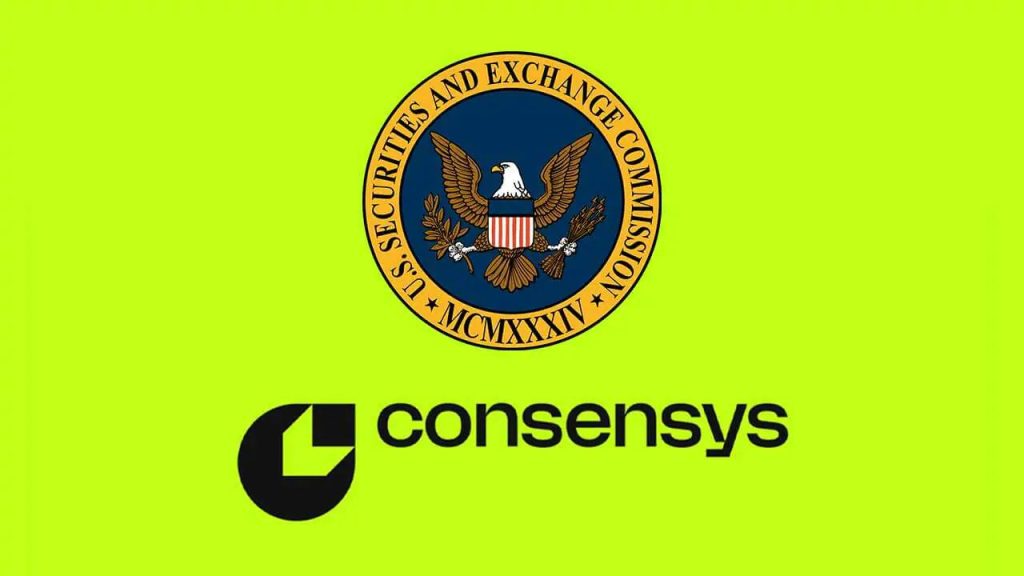
Conclusion
With Ether solidifying its position as the second-largest cryptocurrency globally and serving as the cornerstone of one of the most influential blockchain networks, the Ethereum ETF timeline is reaching pivotal moments. Despite concerns about price volatility, the growing of cryptocurrency legitimacy in TradFi spaces, propelled by the success of Bitcoin ETFs, underscores the pressing need for an Ethereum ETF.
| DISCLAIMER: The information on this website is provided as general market commentary and does not constitute investment advice. We encourage you to do your own research before investing. |





















